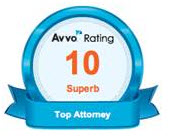When you need to declare bankruptcy, there are a few ways you can go. One of the types that is intended to help you reorganize your business debt is Chapter 11 bankruptcy. If you have heavy debt and just cannot seem to catch up, this may be the time to call in an attorney who can guide you through the details of declaring bankruptcy.
Chapter 11 lets you, the debtor, give the court a plan for a profitable post-bankruptcy that may see you trimming some of the costs of doing business and even seeking new sources of incoming funds. This also allows you to temporarily keep your creditors from harassing you. Speaking to a bankruptcy attorney who knows all the pros and cons to filing Chapter 11 bankruptcy may be a good idea.
The first step is to file for bankruptcy. Once this is done, business continues as always, but your creditors are kept from checking in with you.
The next step is the reorganization plan. The goal is to make your business profitable again. You need to speak with your creditors and either get them to discharge the debt or to at least renegotiate a longer term and maybe smaller payment schedule. Your creditors definitely will want to speak to you about this. If you had filed Chapter 7, your creditors would not receive any payment whatsoever.
If your plan proves to be reasonable and is in compliance with the law, the judge presiding will likely grant it. It is at this point that your creditors will see you repay according to the plan.
If you are a small business owner, you can use Chapter 11. It is meant primarily for large corporations, but small businesses can use this method also. Knowing your rights under the law can really help you if you need to file for bankruptcy.
Source: FindLaw, "Chapter 11 bankruptcy," accessed Nov. 17, 2015








No Comments
Leave a comment